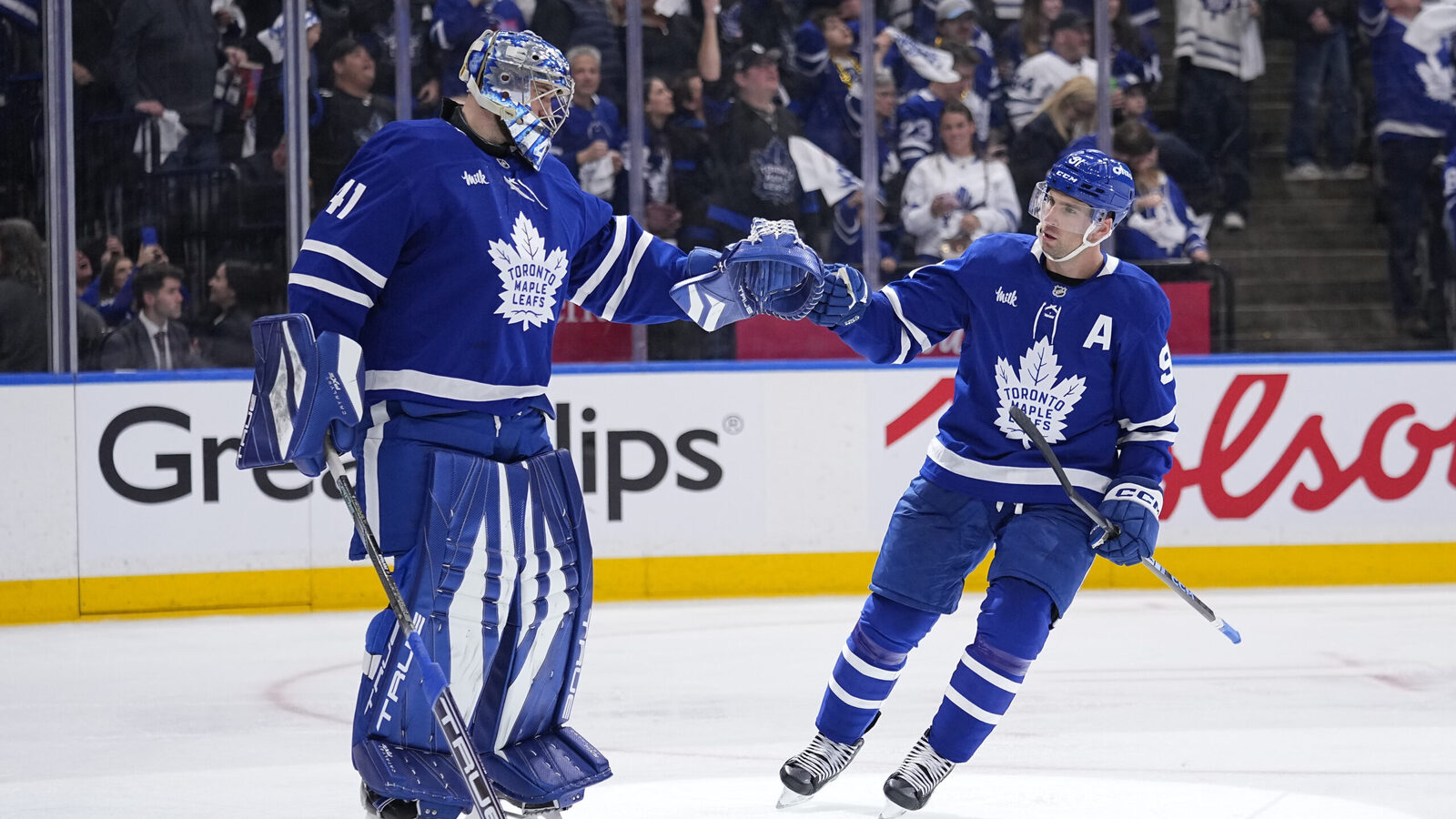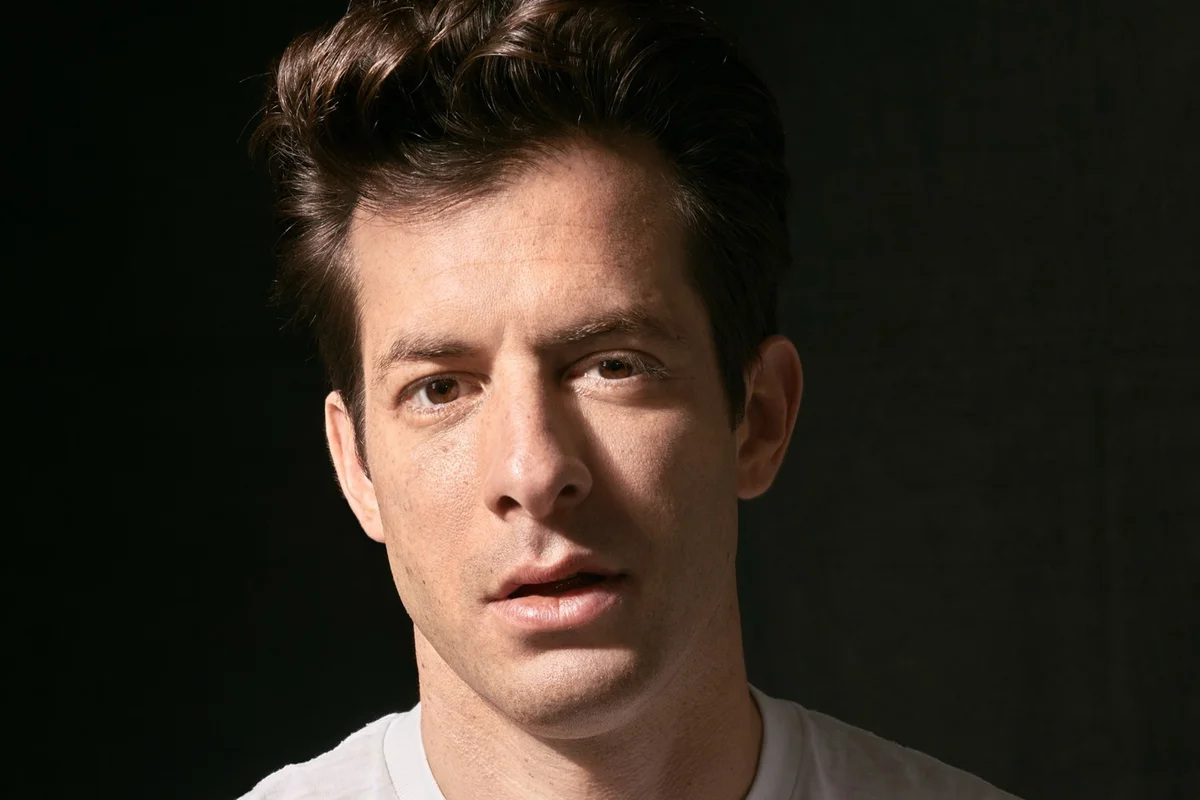Anthony Stolarz is the latest example of Maple Leafs shifting culture around contract extensions

The Toronto Maple Leafs signed goaltender Anthony Stolarz to a contract extension on Sunday, and it came in at a number that had fans breathing a sign of relief.
This wasn’t always the case when the Maple Leafs would extend players in-house. For the longest time, or at least if you read headlines around the league, it seemed like other teams would routinely get their star players (or hell, even role players) to come back at a discount because they wanted to be there. Meanwhile, every time a Leaf was up for a new contract, the media stratosphere would be full of insiders predicting that the Leafs would have to shell out a pretty penny to keep them around, that they’d have to worry about other teams sending their younger players an offer sheet. Basically, if you’ve got a Leaf on your chest, you’d have to pay a premium.
Now only a week and change from the 2025-26 NHL season and with Stolarz as the latest of a handful of contract extensions handed out by Brad Treliving, it’s clear that there’s a bit of a culture shift happening in terms of what it means to be a Toronto Maple Leaf.
When the Maple Leafs entered training camp, the extension talks around Stolarz began to come to fruition. He was coming off the first year of a two-year contract worth $2.5 million annually, a season in which he posted career numbers, including a career-high in games played, and firmly established himself as a 1A in the tandem with Joseph Woll. Many anticipated throughout 2024-25 that Stolarz would eventually get his payday somewhere else and it would leave the Leafs with Woll and whichever goaltender prospect was most NHL-ready.
But when Stolarz was asked about what he was looking for in a deal, he said that cashing out for maximum value wasn’t on his mind.
“Getting paid fairly,” Stolarz said when asked what he was hoping for on his next contract. “Something that helps the team but at the same time, something that shows they believe in me.”
The key point in that quote is the word ‘fairly’. To Stolarz, getting paid fairly means a fair deal for everybody, not just him. And even then, there’s a legitimate argument to be made that his incoming cap hit of $3.75 million annually, which is a raise of just over a million from last season, is more fair for the Maple Leafs’ camp than it is for him. But, it confirmed that it’s not about making as much money as possible for Stolarz, who truly loves playing in Toronto and feels like he’s a perfect fit for the market.
“I’m just a laid-back guy,” Stolarz said. “I kind of look at it as if I’m playing in the best men’s league in the world.”
General manager Brad Treliving had his work cut out for him heading into the 2025 offseason. Aside from the elephant in the room, better known as the Mitch Marner negotiations, he also had to worry about re-signing John Tavares and Matthew Knies. The result was a whopping discount of almost $7 million annually on a new four-year contract for Tavares, and a six-year contract at just under $8 million for Knies, which is a big hometown discount considering what teams could have offered him had he held out and become a restricted free-agent without a contract.
For as much credit Treliving deserves for getting all of these players back at reasonable numbers, it also speaks to a shifting culture within the Maple Leafs organization with respect to retaining players who not only want to be in Toronto but want to win in Toronto. And sometimes, that entails settling on a number that works for all parties, just like Stolarz alluded to.
“He’s been an incredible leader for me and I’ve learned a lot from him, both on and off the ice,” William Nylander said about Tavares on the NHL’s European Media Tour. “He took an unbelievable deal for the team. Wanted to stay. Showed his commitment to want to win a Cup in Toronto. Everyone on the team appreciates that a lot and that shows leadership for sure.”
Then you look at Knies, a workhorse power forward who scored 29 goals last season and quickly took on a more important role with the team following his rookie season. A 22-year-old goal-scorer with the physicality and fearlessness of a multi-year veteran is something that 32 teams would do anything to have, opening up the possibility of one of these teams backing up the brinks truck to pay for his services. But for Knies, entertaining an offer sheet was never in the cards.
“I want to be a Toronto Maple Leaf for good,” Knies said after he signed. “I love it there and I call it home now. I love the staff there, love the players, we get treated phenomenally. It’s just a great spot for me. I think we really have a winning culture, I really trust Brad Treliving and Craig Berube to create a great team and give us the best chance to win.”
The most commonly uttered term over the past half-decade has been “The Core Four”. If the Leafs struggle in the playoffs, it’s because of the core four. If they can’t afford a player they want, it’s because there’s too much invested in the core four. Well, there is no more Core Four. The notion of a team’s star players entirely controlling the destiny of a team’s success no longer exists, and truthfully, it never should have existed in the first place. Sure, losing Marner on paper is a massive blow. They’re down a 100-point player with great defensive instincts. But if the contracts that followed Marner’s departure revealed anything, it’s that the Maple Leafs want to abandon this idea that they live and die by four players. The fourth line is just as important as the first line, the second penalty-kill unit is just as important as the top power-play unit. They are a team, not a roster of players to support the stars.
And nobody is more excited to abandon that notion than head coach Craig Berube.
“What excites me is that I don’t have to hear ‘Core Four’ anymore,” he said. “We lost a real good player here, but we added three good players to our lineup. I’m excited to see where they fit in and how they look.
With Tavares, Knies, and now Stolarz all locked up for the next four years at least, the Leafs are entering a new chapter of the current era. And if they see more success in the following years than they have to this point, it will be in large part due to this new culture shift.



